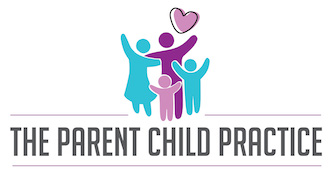It’s not uncommon for children to get upset. We often forget that little people can have big (sometimes very big) emotions.
The problem? If you have a toddler or preschooler, they may not always be able to express those emotions the way they want, even if they are viewed as bright or gifted in other areas. And that can be frustrating for everyone.
Instead of getting angry or discouraged about your child’s emotions, it’s important to help them to work through what they’re feeling. When they learn how to better handle big emotions, they’ll be able to communicate them to you so that you can help.
Let’s look at a few tips you can use to help your toddler or preschooler manage those big emotions and work through them.
Tip #1: Let Your Child Know They’re Safe
Emotions can be scary when you aren’t quite sure how to handle them. One of the best things you can do for your toddler when they’re dealing with something that feels overwhelming is to let them know they’re safe.
Reach out to them. Try to hug or embrace them, if they will allow it. Emotional and physical connection are both important.
Set an example for your child by breathing slowly and staying calm. They’re more likely to follow your example if you do. You can also use words like, “you’re safe,” “let me help you feel better,” or “I’m here” to reassure them.
Creating an environment of safety is often the first step in helping your child to handle big emotions, so make sure they feel secure.
Tip #2: Really Understand How They’re Feeling
Toddlers are going to express themselves in the only way(s) they know how. That might not always be the easiest thing to understand and you may even feel when they are having big emotions that they are being manipulative or “that they know better.” But it’s imperative that you try to understand what they’re saying to you with their actions so that you can empathize with them.
It is also important to remember that the part of their brain known as the prefrontal cortex is still very underdeveloped and this part of the brain helps to manage emotions and self-control. Many parents assume that if their child has well-developed language skills that they should also have well-developed self-control; however, that is not accurate. A toddler’s prefrontal cortex is still maturing and, therefore, it is our responsibility as parents to support them through this developmental period by helping them label their feelings and demonstrating our concern and support.
If your little one is angry, acknowledge it. You could say, “I can see how upset you are about this. I understand why your brother taking your toy would make you feel that way or why leaving the park when you are having so much fun would be upsetting.”
Most of the time, your child just wants to be seen and heard. That helps them to feel understood. So, take the time to acknowledge their feelings and show empathy, rather than telling them to stop crying or not to get angry.
You can even elaborate by asking your child if you “got it right” in knowing their emotions. If you did, it opens up a chance for them to either calm down or elaborate. If you didn’t, you can ask them to further explain how they’re feeling and why.
Tip #3: Help Them Solve the Problem
As a parent, you might have a natural urge to solve your child’s problems for them. But when it comes to handling emotions it’s important for your toddler or preschooler to learn how to deal with them on their own.
When your child feels that their emotions have been understood and that they’ve been heard, it’s likely they’ll be able to eventually calm down. The anger or hurt that seemed so raw and real moments earlier can start to fade away.
You can certainly guide your child through their emotions and help them, but let them be the ones to brainstorm ways to work through everything. They’ll continue to get better at it over time, and they will eventually learn how to express their emotions in a healthy and productive way. Allowing for that process helps them to develop emotional intelligence—something they’ll be able to carry with them into adulthood.
—
If you have a young child who has a difficult time handling their emotions, you’re not alone. It’s a normal stage for toddlers and preschoolers. Despite that it’s common, though, it can feel overwhelming for parents.
If you would like further guidance to help your child handle big emotions (or other problems), feel free to contact me for more information.
Resources:



